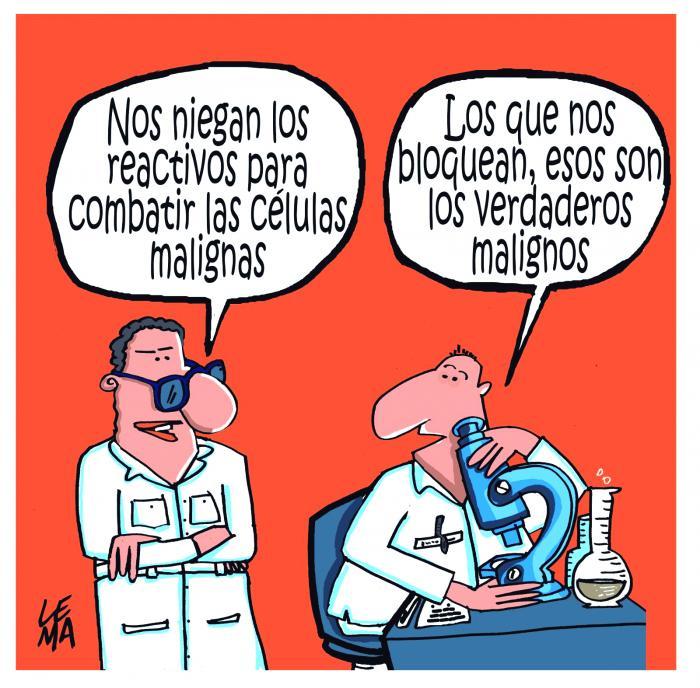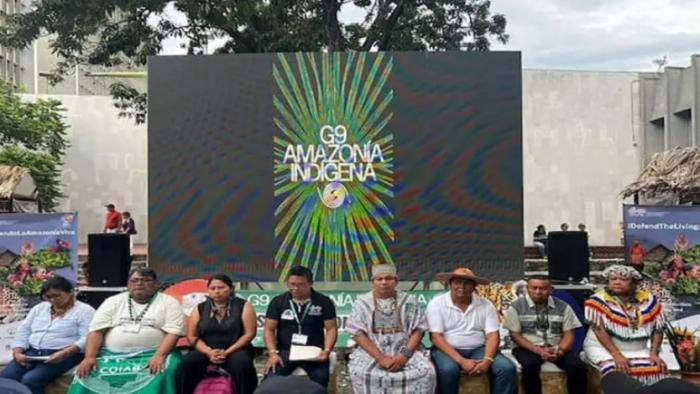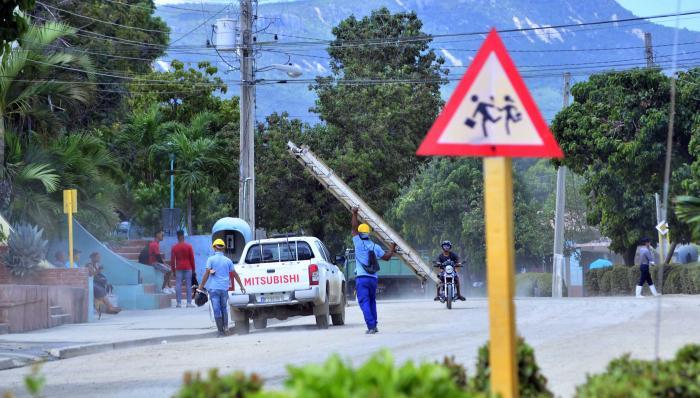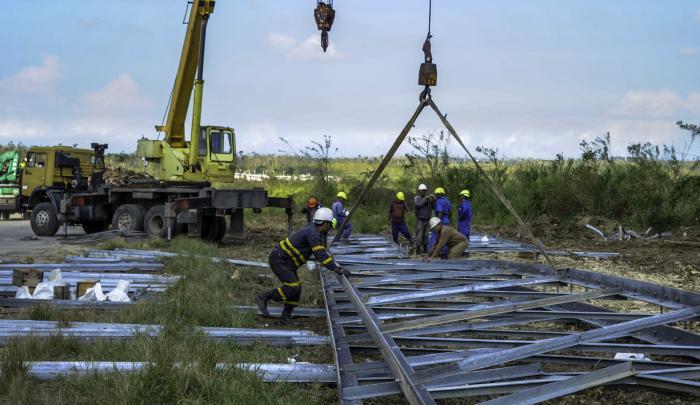

Photo: Illustration ( - They deny us reagents to fight malignant cells. - Those who block us, those are the real malignants.)
RIt reads fast: the intensive care unit and surgical suites of the Institute of Neurology and Neurosurgery require spare parts for air-conditioning equipment. However, the producing company, of French origin, is affiliated to a U.S. transnational, and that fact limits the acquisition for Cuba.
It reads quickly, but the consequences are profound and regrettable, precisely because they have names and surnames and cast a shadow over the lives of many families: the set of laws imposed by the U.S. government blockade on the island, in addition to condemning the physical and mental health of patients and their loved ones, generates tensions among medical personnel and has a negative impact on the institutions.
A painful example of this asphyxiation are the 53,000 cancer patients who, if they are not attended with all the requirements, may die within three years.
This was stated by Dr. Jorge Juan Marinello, president of the Cuban Society of Oncology, Radiotherapy and Nuclear Medicine, at the recent Forum of the Cuban Civil Society Against the Blockade; and he added that acquiring, in distant markets, medications for oncology patient care is a limitation, due to the high cost and possible fines in terms of transportation.
“There is no access to the U.S. market to obtain the drugs, as well as the technology and equipment for molecular diagnostic tests in personalized medicine, which sequence the genome of a tumor and define molecular alterations related to specific treatments,” Marinello added.
He recalled when they prevented obtaining the radioactive sources for brachytherapy equipment to treat gynecological cancer, and patients went more than eight months without treatment.
“It is not the fault of the Cuban Government, as they try to make people believe, but of that sinister system of measures to paralyze the country”, he denounced.
Meanwhile, Dr. Albia Pozo Alonso, director of the Cuban Journal of Pediatrics, explained that deliberately depriving medical resources such as suits, gloves..., necessary supplies for the care of health personnel, affects the care required for children. Moreover, “their availability can make the difference between life and death for patients”.
He stressed that, although the international community has recognized the contribution and altruism of Cuban medicine, one of the purposes of the U.S. government is to discredit the medical intervention offered by Cuba. In addition, it threatens the enjoyment and the right to health of many human beings, who have benefited from the work of Cuban doctors.
At the same time, he added, this policy also affects the execution of national health programs, such as maternal and child care, cancer control, care for seriously ill patients and disabled children, and others aimed at controlling epidemics.
Pozo Alonso exemplified how, at the beginning of the year 2021, Cuban doctors were invited to an international congress in the U.S. and, since it was impossible to make the bank transaction, they were unable to attend.
On the other hand, Olga Agramonte Llanes, president of the Cuban Society of Hematology, declared at the 20th Forum of the Cuban Civil Society Against the Blockade that all the “maneuvers” applied affect people's quality of life.
To detect many hematological malignancies, Cuba does not have molecular and immunological diagnostics: “On many occasions, markers are required to identify the cells, and we know that they are very close to us, but we cannot obtain them.”
That is why, he pointed out, it is necessary to modify the treatments, but there is a probability that not all of them will be favorable.
An example of this is that the cure rate has dropped from 80 % to less than 50 %; “and this result depends on the need to buy, the remoteness of the markets and the financial persecution.
A POLICY AGAINST SOVEREIGNTY
How is it possible that such an inhuman policy remains in force? For Eugenio Selman-Houssein, director of the William Soler Cardiocenter, the U.S. Government has turned Cuban infants, people suffering from illnesses and families into enemies.
The situation has its roots in U.S. policy which, instead of preserving life and values, defends spurious interests, even when they condemn patients to suffering, Selman-Houssein exclaimed.
“It is recognized that U.S. companies own more than 80% of the patents for cardiovascular products and equipment. To prevent us from buying them there, to have to go far away and that many times the bank transfer is not accepted, has no ethical or human explanation,” he said.
Reinol García Moreiro, Deputy Minister of Public Health, agreed with the above and added that the Cuban biopharmaceutical industry, which has produced 70 % of the basic list of medicines, reagents and medical equipment, has been prevented from continuing to make progress because of the selective blockade of the places where the largest of the Antilles obtains raw materials, and because of the infamous list of countries sponsoring terrorism.
If it did not exist, he said, it would allow the Public Health to recover its basic list of medicines and reagents, eliminate that waiting list of more than 9,000 children pending oncological surgeries and surgeries for malformations, as well as the acquisition of antibiotics for pregnant women.
“But that same blockade has not prevented us from continuing to be a united people, with ingenious solutions; we are also more humane, patriotic and anti-imperialist. Cuba is a great nation that saves lives,” said García Moreiro.





